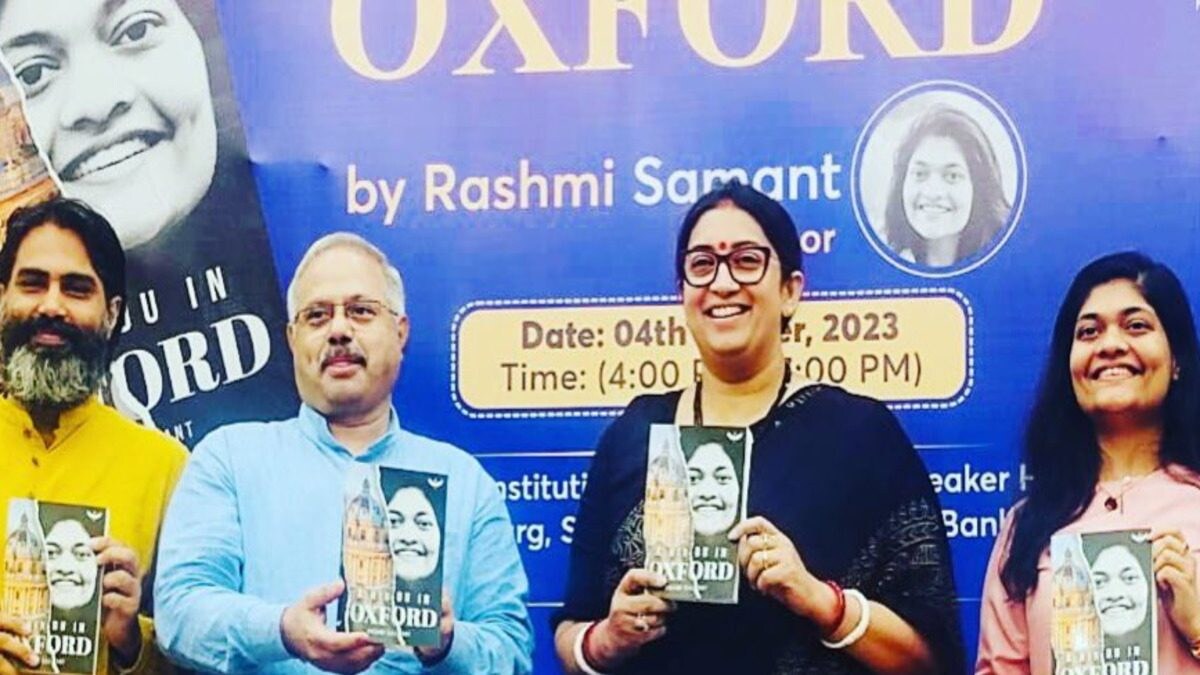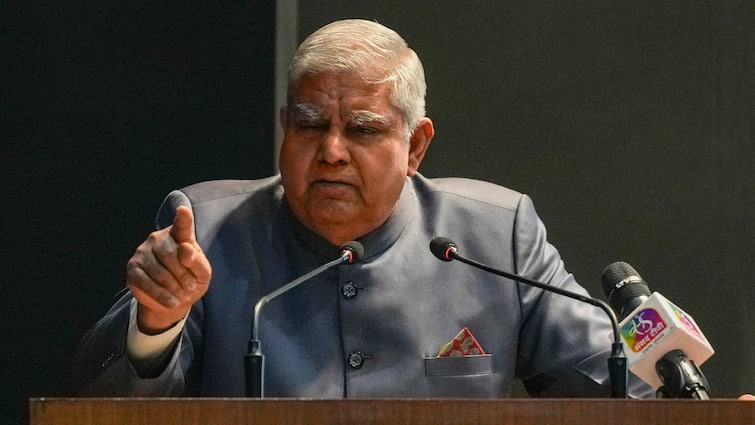- October 5, 2023
‘Save Birds’ Progressive, ‘Save Cows’ Communal? RSS Leader Ambekar Slams Liberals in Decolonisation Debate – News18

The book is also a part of the RSS’s decolonisation movement. Pic/X
Ambekar released the book ‘A Hindu in Oxford’, authored by young professional Rashmi Sawant, who narrated her experiences of being the first Indian woman to win and head the students’ union in Oxford and the racist slurs she had to face following the union election. The programme was also attended by union minister Smriti Irani
Stirring up the decolonisation debate yet again, a senior Rashtriya Swayamsevak Sangh (RSS) functionary said that anything ‘Bharatiya’ or ‘Desi’ always appears to be ‘regressive’ for the group of so-called liberals. The ‘liberal’ groups always talk about name-changes, terming them ‘communal’ and RSS propaganda, but how does ‘save birds’ sound like a progressive slogan, while ‘save cows’ become communal, asked Sunil Ambekar, a senior RSS functionary and Akhil Bharatiya Prachar Pramukh (national spokesperson) of the organisation.
Focus on right-wing literature
RSS chief Mohan Bhagwat has spoken about Western influence on Indian academia and intellectuals. The Sangh has initiated a process of bringing in new right-wing literature and introducing scholars who believe in the ideology. As a part of “decolonisation” and to counter Left-centric and “Western” influences, the RSS and like-minded organisations are building a new right-wing ecosystem of books. Multiple publishing units, which are directly linked, affiliated, or indirectly associated with them through their ideology, have been a part of this movement.
Ambekar released the book “A Hindu in Oxford”, authored by young professional Rashmi Sawant, who narrated her experiences of being the first Indian woman to win and head the students’ union in Oxford and the racist slurs she had to face following the union election. The programme was also attended by union minister Smriti Irani. The book is also a part of the RSS’s decolonisation movement. Ambekar called such books ‘inspiring’ and that they will ‘strengthen’ the will of the students to be proud of their Indian origin.
‘Why is Mumbai fine, but not Prayagraj?’
While sharing his thoughts on the significance of Rashmi Samant’s story in the context of the educational landscape in Bharat and abroad, he said, “Some people and some countries have monopolised what is liberal and modern and what is communal and regressive. We should not adhere to their definitions and we need to have our views based on our culture and identity.”
The colonisers have left, but the colonised confused minds are still here, he said. “They often talk about the change of names of places. Bombay was renamed as Mumbai, Madras was renamed as Chennai. They were all fine with the changes and the changes came across as progressive. But when Allahabad became Prayagraj, they called it communal,” he added.
Minister Smriti Irani echoed him. “Rashmi Sawant’s book is a story of a person who was bullied for her identity and views but she overcame that and won. But there should also be a book sharing stories of those who couldn’t do so,” she said. “Pranayam, which is an ancient practice here, is called spiritual. But when a foreign medical journal calls the process Cardiac Coherence Breathing (CCB), it becomes science.”
Irani also said that this is the first time that 4,300 Muslim women from India left for Hajj alone and returned. Muslim women were earlier not allowed to go on Hajj pilgrimage alone and they were mandated to be accompanied by a male member. “However Modiji changed such thought process, and he said that it was not mentioned in Islam. He took initiatives and 4,300 Muslim women went on the Hajj pilgrimage alone this year,” added the minister.







